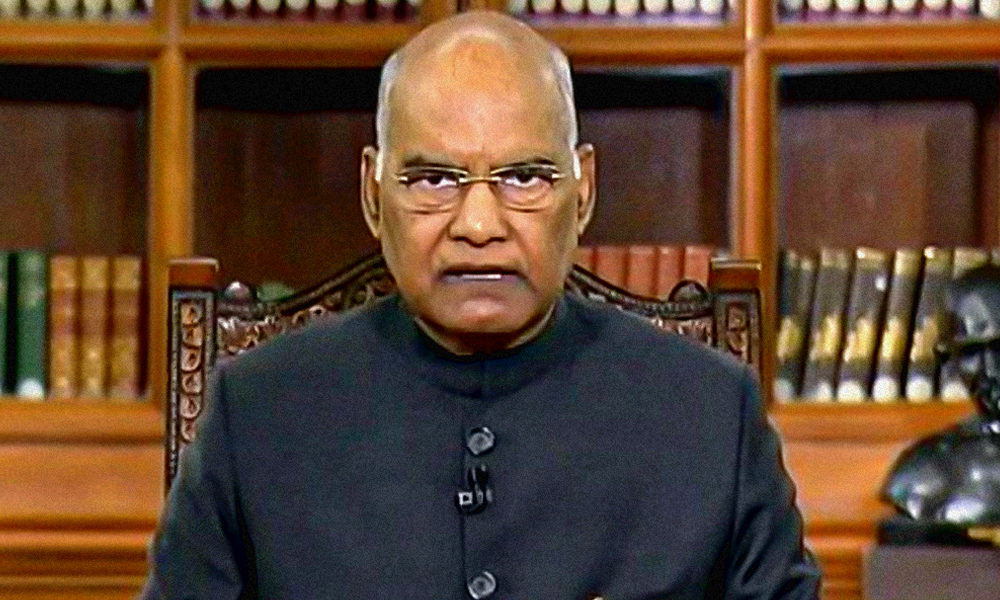
Image Credits: NDTV
Sex Ratio Among Tribals Better Than General Population: President Ram Nath Kovind
Writer: Devyani Madaik
A media enthusiast, Devyani believes in learning on the job and there is nothing off limits when it comes to work. Writing is her passion and she is always ready for a debate as well.
Madhya Pradesh, 8 March 2021 12:06 PM GMT | Updated 8 March 2021 12:06 PM GMT
Editor : Shubhendu Deshmukh |
Shubhendu, the quint essential news junky, the man who loves science and politics in equal measure and offers the complete contrast to it by being a fan of urdu poetry as well.
Creatives : Rajath
A free spirit who find meaning in life with the virtue of creativity and doing job par its excellence, animal lover and traveller by heart.
The President emphasised the need for educational development of the tribal communities, given that it is one of the powerful mediums for the progress of any person or community.
There is no gender-based discrimination in the tribal communities, and as a result, they have a better sex ratio in comparison to the general population, President Ram Nath Kovind said on Sunday.
While addressing a state-level Janjatiya Sammelan' (tribal meet) in Madhya Pradesh on March 8, Kovind said that the general population had a lot to learn from the tribal communities, which gave more importance to a group over any individual and encourage cooperation.
"We can learn a lot from our tribal brothers and sisters. In tribal communities, stress is laid on unity-based societies," NDTV quoted him as saying.
He also emphasised the need for educational development of the communities, given that it is one of the powerful mediums for the progress of any person or community. Talking about the tribal lifestyle, which includes worshipping nature and treasuring the traditional knowledge, Kovind said people should adopt such values.
"I have been told that the Baiga tribe, which is one of the most backward tribes in Madhya Pradesh, has immense knowledge of traditional medicine and health care," he added.
The tribal community's contribution to manufacturing traditional ayurvedic medicines could prove to be very useful, said Kovind.
He also reminded people of working towards becoming self-reliant and emphasised the 'Made in India' vision. "Our tribal brothers and sisters are highly skilled in making handicraft products. Efforts should be made so that their products are well-priced and widely marketed."
On occasion, he unveiled the foundation stone for the conservation work of Singorgarh fort and inaugurated the Jabalpur circle of the Archaeological Survey of India (ASI).
Also Read: Odisha, Delhi, Uttar Pradesh With Most Contaminated Sites In India
 All section
All section














